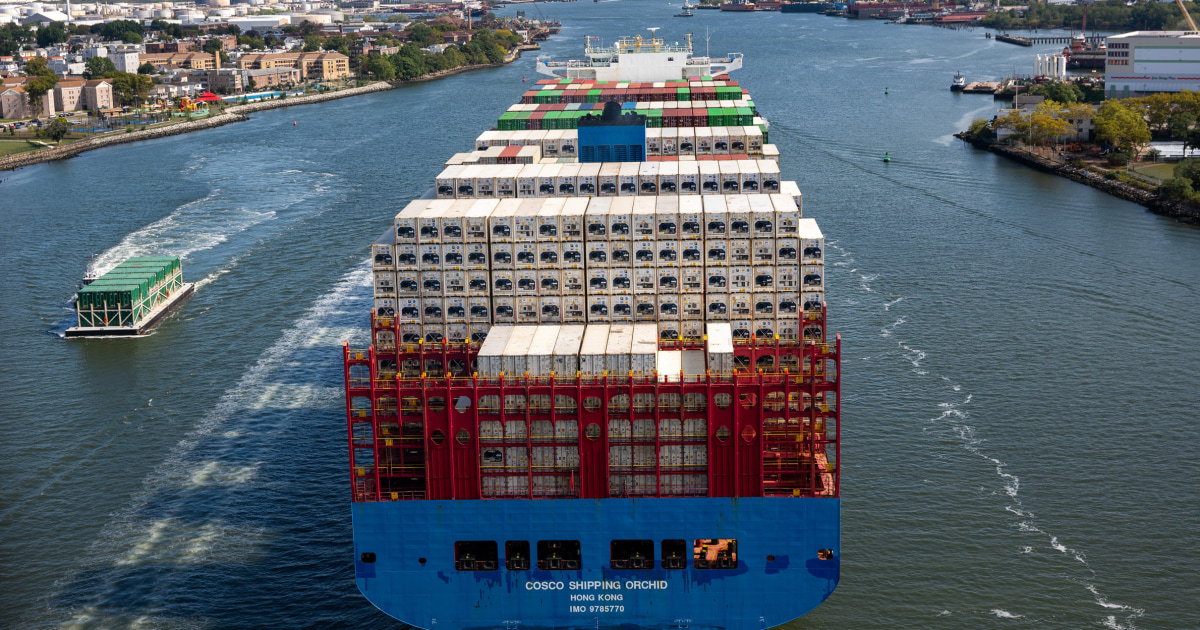Tens of thousands of longshoremen are likely to go on strike at the stroke of midnight, shutting down major ports along the East and Gulf Coasts and choking off deliveries of everything from produce to auto parts.
Consumers aren’t likely to feel the pinch unless a walkout lasts for multiple weeks, after businesses and logistics firms took preemptive steps to blunt the impact. But a work stoppage could still cost the U.S. economy anywhere from several hundred million dollars to as much as $4.5 billion a day, analysts and business groups warn.
The ports handle about half the ocean imports in the U.S. Varying estimates say between 25,000 and 50,000 members of the International Longshoremen’s Association could participate in a strike. All told, the ILA has 85,000 members. Union leaders argue that big global cargo carriers have benefited from pandemic-era supply-chain snags that drove up freight rates, saying workers haven’t sufficiently shared in those gains.
A strike would cap months of heated rhetoric between the union and the United States Maritime Alliance, or USMX, which represents major ocean freight and port operators. The union is seeking pay raises along with limits on automation at ports that it says could cost jobs. The two sides haven’t negotiated in the days leading up to the potential work stoppage.
“The Ocean Carriers represented by USMX want to enjoy rich billion-dollar profits that they are making in 2024, while they offer ILA Longshore Workers an unacceptable wage package that we reject,” the union said in a statement Monday.
The USMX, meanwhile, directed NBC News to a statement it issued last week, urging the ILA to get back to the table. “USMX has been clear that we value the work of the ILA and have great respect for its members,” the group said.
Several industries are prepared for the strike, having ordered goods in advance when it became apparent that a stoppage could start Oct. 1, but analysts expect more serious impacts if a walkout lasts for several weeks or longer. Trucking and other logistics companies are racing to get as many goods as possible out of ports before a potential strike.
The vast port operations of New York and New Jersey stand to be most affected, with about 4,500 workers in the region. New York Gov. Kathy Hochul said that her state and the Port Authority of New York and New Jersey have been anticipating the strike but warned of potential impacts.
“We’re working around the clock to get critical cargo out of our facilities — food products, medical supplies, other essential goods,” she said Monday. “We’re also working closely with the commercial trucking industry to ensure that these items reach their destination.”
Business groups have urged President Joe Biden to intervene under the 1947 Taft-Hartley Act. Under that authority, Biden could seek a so-called 80-day “cooling-off period” that would force dockworkers to stay on the job.
But while the White House has been in touch with the ILA and USMX in recent days, the president is not looking to invoke the law. An intervention could also unsettle relations with organized labor with 35 days before Election Day, as Democratic Vice President Kamala Harris looks to maximize her union support against Republican former President Donald Trump.
“Because it’s collective bargaining, I don’t believe in Taft-Hartley,” Biden told reporters Sunday.



